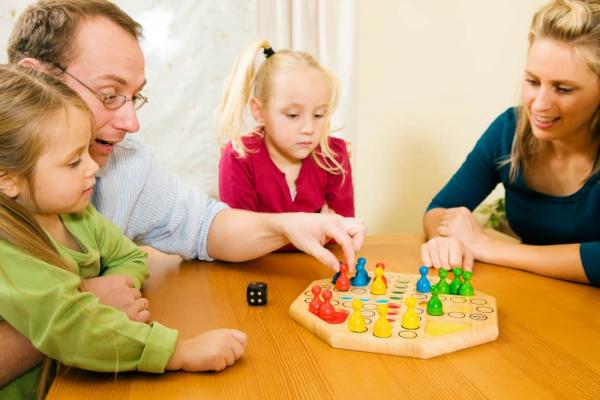
Entertaining a large group of various ages can be a daunting task. Thankfully, there are ways that you can minimize the stress and headaches that often come with planning games for your family. Here are a few tips to consider when the family is getting together.
Identify Your Audience
Because our topic is "Family Games for a Big Group,"� we will assume our audience is a family of many ages. All families are different, however, and that means you will need to identify the people that you will be planning for. These are some ideas for identifying the needs of your group.
Make a List
Do you know who is going to be there? Make a list of who will be participating. That way you'll be sure to include everyone.
Determine Group Size
"Big group"� is a loosely defined term. By determining the specific size of the group (as in, exactly how many people there will be), you'll know if you need one big game, several smaller games, a lot of prizes, a dozen chairs, etc.
Keep Personality in Mind
Some members of the family may not be perfect candidates for getting up and making fools of themselves. Plan participation accordingly so an embarrassing game doesn't leave a shy personality in tears.
Be Age-Appropriate
Do you have ways for a two-year-old to participate? What about the teenagers? Will these games cause grandma to break a hip? If you are doing multiple games, it's okay to have some kid-only and adult-only games. Just make sure everyone has a chance to participate.
Pick a Theme
Picking a theme for your games will greatly narrow your activity search-in a good way. Think about why the family is getting together. Is it for summer vacation? Try an "outdoor"� or "water"� theme. Is it for the holidays? If, so, then a "Christmas" theme seems pretty appropriate. Your theme doesn't need to be complicated; just make sure that your theme helps you in your activity search and doesn't limit you from doing what you really want to do.
Consult Other Resources
Chances are, you've been to a large group gathering before and played some games. Draw on your memories of other successful group activities. If you remember having a lot of fun with an activity, your group will likely enjoy it as well. Try asking family members if there are any games they remember enjoying or if they have any other suggestions.
The Internet is also one of your best resources for ideas. There are many parents out there who are willing to share their advice and ideas on playing family games. Use your favorite search engine or family website.
Be Prepared
It's not just a motto; it's very wise advice.
Assign or Volunteer
With my family, I knew that assignments had to be made. I made a list of everyone present and decided beforehand which games I would assign them (with some flexibility of course). That way, no feelings were hurt and volunteering for games didn't turn into shouting competitions. Decide what works best with your group.
Have Your Supplies Ready
Make sure you've thought of every scenario. If you're playing a game that requires a table, bring one in beforehand to avoid wasting time and losing short attention spans.
Prizes
If you're giving out prizes, decide how you want to do it. Will the winner pick what they want or will they draw from a bag? Will anyone be upset with their prize? Will everyone get a prize? Consider your audience.
Let Participants Know
Some outdoor games may involve running or swimming, and might require that participants get dirty. Make sure that everyone knows ahead of time what they need to bring in order to enjoy the activities
Most important of all, relax. If you aren't enjoying game time, you've missed the point. When everyone is enjoying time together, you know your games are a success.
For game ideas, try these resources:

